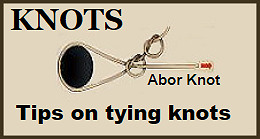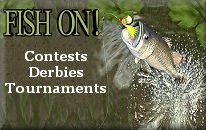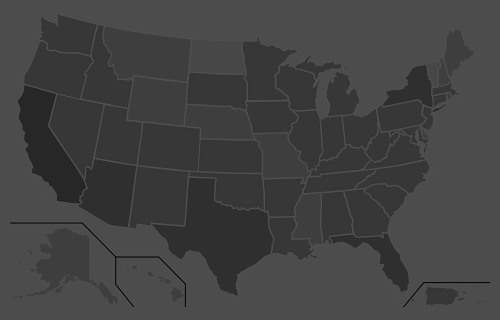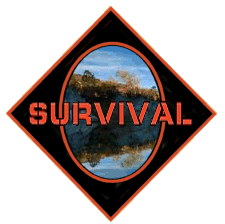“Our added winter moisture and active calling period led to a very long nesting and hatching season, starting in late April and extending into early summer, with chicks hatching as late as early July,” O’Dell said. “From a population standpoint, we are out of a deficit for the first time since 2001-2002. Quail are starting to pop up in places they haven’t been seen in a while.
“If you’ve never had the chance to experience what Arizona quail hunting built its name on, then this would be the year to get out and enjoy it.”
Meanwhile, hunters should note that the season for Mearns’ quail doesn’t begin until Dec. 4. It’s summer rainfall that plays a key role in nesting success and population numbers of this species. After a spotty and relatively weak monsoon across southern Arizona, these birds are likely to be abundant only in pockets that received sufficient precipitation this summer.
A valid Arizona hunting or combination hunt and fish license is required for all hunters 10 and older. Those hunters under 10 must either have a valid hunting or combination hunt and fish license, or be accompanied by an adult who possesses a valid hunting or combination hunt and fish license. Licenses can be purchased online or at license dealers statewide. A youth combination hunt and fish license (ages 10 to 17) is $5.
The general bag limit is 15 quail per day in the aggregate, of which no more than eight may be Mearns’ quail (when the Mearns’ season opens Dec. 4). The general possession limit is 45 quail in the aggregate after opening day, of which no more than 15 Gambel’s, scaled or California quail in the aggregate may be taken in any one day. After the opening of the Mearns’ season, the 45-quail possession limit may include 24 Mearns’ quail, of which no more than eight may be taken in any one day.
More quail-hunting information can be found on the department’s website at https://www.azgfd.com/Hunting/. Another resource for both new and experienced hunters alike is “An Introduction to Hunting Arizona’s Small Game.” Written by Randall D. Babb, the 196-page, full-color book covers where and how to hunt small game birds (like quail), squirrels, rabbits, ducks and geese. It also includes how to prepare and cook your harvest, with illustrations and recipes. The book can be ordered for $16.95 at www.azgfd.gov/publications.
Finally, hunters should check out O’Dell’s techniques for field-dressing quail at https://www.youtube.com/watch?v=3gRwZAcWzzk.
####
Publishers Notes: OUT OF STATE HUNTERS, FISHERMEN & OUTDOOR ENTHUSIASTS; Due to the Covid 19 pandemic, there could be limitations for OUT of STATE hunters, fishermen and other outdoor enthusiasts to include a 14-day quarantine requirement or negative COVID-19 testing alternative. Please check with the State's Department of Natural Resources BEFORE you travel or apply for the 2020 Fall Hunts.
SURVIVAL & SAFETY
Unfortunately, some of the world's favorite past times can also be some of its most dangerous. Everyone (hunters, fishhermen, campers, hikers) should know some basic things before heading out into the field or on the water.
The Backcountry Press
Information from fellow hunters, fishermen, campers and hikers to keep you safe when going in the field or on the water.
© 2020 TBC Press - All Rights Reserved Website Design by:
H U N T E R S A F E T Y
What We Can Learn From the 2 Lost Hikers in Hawaii
In two separate cases, hikers became lost in the wilds of Maui Hawaii last month (May 2019). Both were 35 years old and each one was in great physical condition. There was even an overlap in the time that the two hikers were missing. While their exact survival situations were very different, the circumstances for each were similar. One hiker was found alive by rescuers, the other, sadly, was found dead. Here is a look at both cases from a survivalist’s point of view and provides some info on...
How To Stay Alive if Lost, Hurt or Stranded -- The following scenarios and others like them play out over three thousand times per year in the United States. Folks heading outdoors in search of adventure don't plan on getting lost or hurt in the wilderness. It can happen to the best of us, and when it does, people underestimate the challenges of the wilderness and overestimate their own ability.
Fairbanks snowmachiner John Johnston has never been forced to bivouac (camp in the open) on the trail or in the mountains during 30 years of riding in Alaska, but he’s more than prepared to do so if that situation arises.
Have you ever been in a survival situation? Most of us have not. Would you know how to survive in the wilderness in a crisis? Believe it or not, most of us would not. With the advent of Global Positioning Systems (GPS) we've been lulled into a false sense of security, thinking that we can escape any predicament by following our handy little electronic devices to safety.
Hunters and outdoor enthusiasts headed to the field should be aware of the threat of hypothermia and how to combat it. Hypothermia occurs when exposure to the wind, cold and wetness drain heat from the body faster than it can be produced...
Diehard outdoor enthusiasts often have a love/hate relationship with cotton. While it has many uses, winter clothing shouldn’t be among them. This is due to the fact that cotton holds moisture much longer than other fabrics, thereby wicking away precious body heat instead of moisture. Good to remember when getting dressed, but cotton isn’t all bad. When applied to the right task, this fiber can start a fire, light our way, and help us acquire meat in a survival setting. Skip the cotton clothing in cold weather and instead, use this age-old fiber to help you survive...
HUNTING & FISHING IN BEAR COUNTRY
Angler & Hunter Tips On Staying Smart in Bear Country -- Posted 05/13/16 Anglers and hunters need to be extra cautious while recreating in bear country. Because they are often moving quietly, they are at higher risk of surprising bears while they are in the field. Nothing will guarantee your safety in bear country, but knowledge of bears and proper behavior greatly reduce your risk. Here is some information to help both from a bad encounter...
OUTDOORS IN SNAKE COUNTRY
How to Survive a Snake Encounter: As rewarding as hunting, fishing, hiking & camping may be – giving you the chance to connect with nature, while surrounded by beautiful scenery – it is not without its downsides. One of them being the possibility of a snake encounter, especially if you’re in snake country. Snake encounters are uncommon, and snake bites even more so, but it’s always important to read up on snake safety on the trail, just in case you come across one of these slithery creatures...
Boating Safety Tips
Drowning is the biggest safety risk for waterfowl hunters. Each year, more waterfowl hunters die from drowning than from other types of hunting accidents. Swamping, capsizing and falling overboard are all common factors leading to these deaths, but in nearly all cases the hunter would have survived had they been wearing a life jacket. Other water safety tips for duck hunters include...
Ten Important Tips Including Safety For Watercraft Users -- Whether you’re planning to take that new watercraft out for some sightseeing, do some fishing or waterfowl hunting, all new and veteran watercraft users are encouraged to remember the following 10 tips to remain safe on the water.
Boating Safety Tips -- Holidays generally means a lot of boats on local waterways. “We want everyone to have a great time and enjoy their time on the water this weekend. “We also want everyone to be safe and make it back home alive.” Here are some important Boating Safety Tips:
Cold Water Dangers to Hunters, Anglers -- Water does not have to be near freezing to kill, it only has to be colder than a person to cause potentially fatal hypothermia. Waters are cold now with waterfowl hunters gearing up for a new season, and many anglers are still fishing. Overloaded boats and failure to wear life jackets are leading reasons states typically loses a couple of waterfowl hunters every year.












